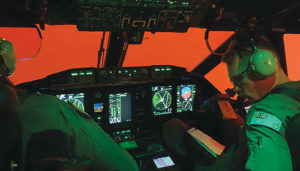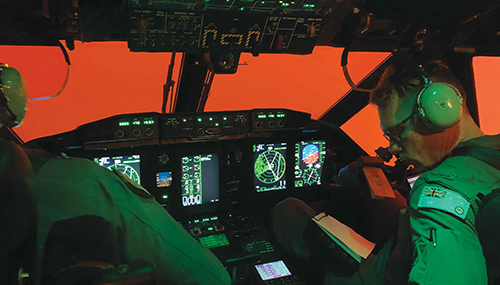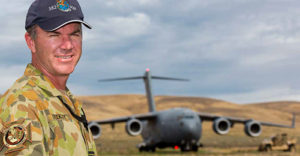Australian Defence Force assets and personnel are often called upon to support mitigation efforts during emergencies and disastrous situations, so providing support for operations to minimise the effects of the bushfires is out of the ordinary but something these men and women are trained to do.
This week’s Star Chat examines the support provided by the ADF with Squadron Leader David Weekley, Executive Officer at No 382Squadron at RAAF Amberley. His specialisation is Logistics Officer.
LQ: What has been your role in assisting bushfire relief?
DW: I provide executive support and expeditionary advice to the Commanding Officer of No 30 Squadron at RAAF Base East Sale.
LQ: What is the difference between operations at home and while deployed on operations?
DW: 382SQN is a contingency response squadron, so the roles are the same as I would perform on the majority of deployments. The main difference is that when we are working at Amberley, i.e. not deployed, our focus is on ‘raise, train and sustain’ to ensure all 382SQN members are prepared, poised and postured as both individuals and teams ready to provide for lean, light, rapid, responsive and effective expeditionary airbase operational
support. I have deployed on numerous occasions to the Middle East Area of operations, and both internationally, such as Australian Defence Force support to the Pacific Island Forum, and within Australia on activities and training exercises, such as Exercise Talisman Sabre.
While the airbase operational support we provide is similar, the situation and mission can be vastly different.
I had a much smaller role at Amberley in providing airbase operational support during the
humanitarian and security crisis that took place in East Timor from 1999-2000, and Operation Yasi Assist in Queensland but have never deployed on a Defence Aid to the Civil Community (DACC) tasking on this scale.
LQ: How do you prepare, mentally and from a logistics standpoint?
DW: As members of a contingency response squadron, we are postured to deploy and provide this type of support at short or very short notice. In times such as this, we use
experience and lessons gained from previous activities and build our plan and actions from there. At the tactical level, lots of reading on the road or in the air helps understand the mission on the way to your next location. The logistics staff work incredibly hard all year round to ensure the equipment is postured to deploy, just like our personnel.
LQ: Have you learned anything that surprised you this time?
DW: I have learnt that no matter how short the planning time may be and no matter how many Defence and civilian agencies from all over the world are involved when in a crisis we can all work together and make it happen in a safe environment.
LQ: What’s important about the support offered to those in danger?
DW: I am confident they are comforted that there are thousands of people working together to ensure support is made available. This includes firefighters saving houses and property, to evacuations from dangerous situations. Specific to our mission is to ensure the airbase can support the fixed-wing and rotary-wing aircraft flying into the areas of operation. The aircraft have several tasks including the evacuation of civilians and animals;
the transportation of civilian agencies and their assets; the return of evacuees once areas are deemed safe; and the supply of critical stores. It is important to note that the ADF does these tasks in support of the Emergency Services and other civilian agencies.
LQ: Is there a rewarding element?
DW: The entire operation is rewarding! It’s the look of gratitude from tired, stressed evacuees and volunteers, the ability to plan then execute Defence support, working closely with other governments, nations and Defence personnel, and reading the kind words on
social media.
LQ: How would you reflect on your time involved in the effort?
DW: It will be a positive reflection once my part is complete. It’s difficult to walk out the front door and wave goodbye to the family, but as the cliché goes, ‘it’s what we’re trained for.’ I know the people of Australia, and my family, are proud of the way in which the Australian Defence Force can provide support to the state and territory governments in this time of need.


Left: Squadron Leader David Weekley.
(Defence Photos)



















![[CLOSED]December Mega Book Giveaways](https://lifestyleqld.com.au/files/wp-content/uploads/2017/11/books-265x198.jpg)










